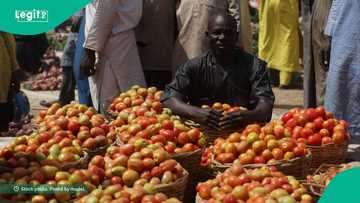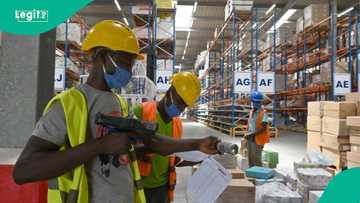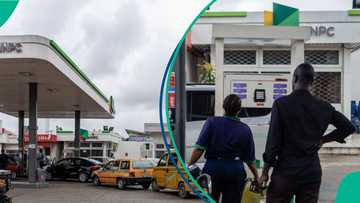What is the average cost of living in Nigeria? Compare the stats now
The cost of living refers to the amount of cash needed to cater to basic expenses, e.g., housing, food, taxes, and healthcare. Numerous people have complained that the cost of living in Nigeria has gone up. This is a global phenomenon that is not exclusive to the country. Many households have had to tighten their monthly budgets to survive.
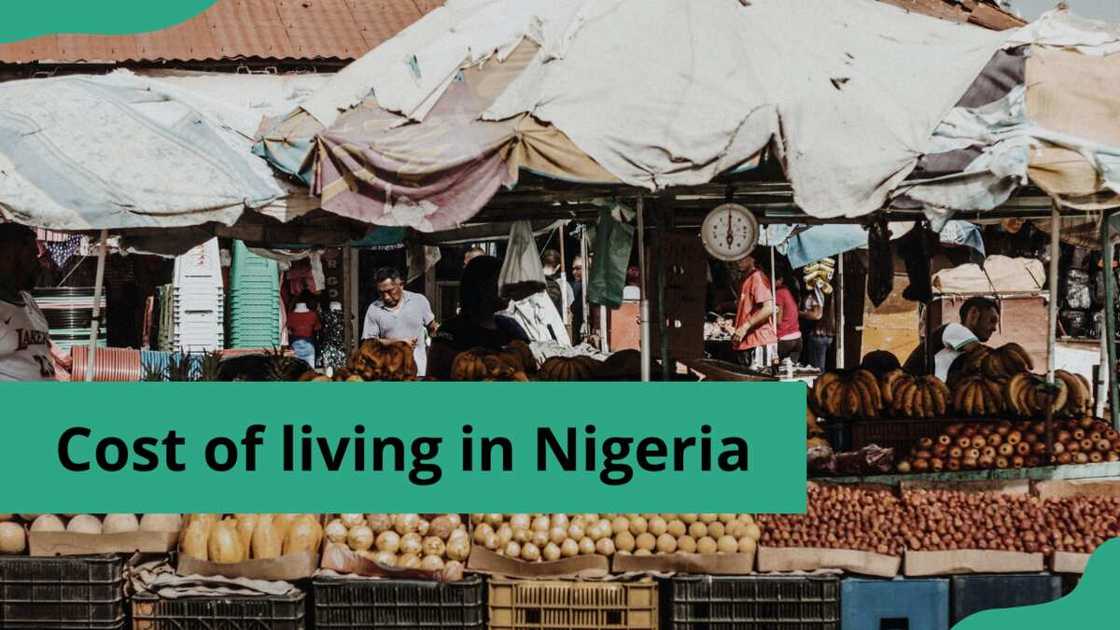
Source: UGC
Compared to a decade ago, the cost of living in Nigeria in 2023 is significantly higher. Things cost more than they did back then, and many families have not experienced an upward change in their monthly or annual income.
Cost of living in Nigeria
Numerous people have complained about the high cost of living in Nigeria in 2023, but do you know what that means?
It means that the amount of money people need to spend on basic goods or services has increased. Many countries are experiencing a higher cost of living post the coronavirus pandemic.
What is the average cost of living in Nigeria?
Below is a breakdown of the cost of living in the country. Note that the figures given are estimates or averages. The exact amount may differ from one location to another.
Bear in mind that the cost of living is higher in towns and cities than in rural areas. The average monthly expense for a family of four is ₦1,109,034, and the average monthly expense for a single person is about ₦310,669 (without rent).
Since it is not possible to list the average prices of all household items, only the major ones will be included.
Accommodation/ rent
The amount of rent payable in the country has increased in the last few years due to increased demand. Here are the average prices for various units.
Unit size | Price in ₦ |
1-bedroom unit in the the city centre | 457,453 per month |
1-bedroom unit in the outskirts of cities | 298,632 per month |
3-bedroom unit in the city centre | 1,011,162 per month |
3-bedroom unit in the outskirts of cities | 655,833 per month |
Buying an apartment in city centre | 483,100 per square metre |
Buying an apartment in the outskirts of cities | 199,700 per square metre |
Food prices in Nigeria
Increased food prices are one of the most pressing issues in the country in 2023. How much is the cost of living in Nigeria? Here is a breakdown of the average cost of food items.
Food item | Price in ₦ |
1 meal in an inexpensive restaurant | 1,500 |
3-course meal for 2 in a mid-range restaurant | 20,000 |
Combo meal at McDonald's/ KFC | 3,000 |
1 litre of regular milk | 1,585 |
500g fresh white bread | 778 |
1kg white rice | 1,272 |
1 dozen regular eggs | 1,049 |
1kg local cheese | 2,499 |
1kg chicken fillet | 2,671 |
1kg beef | 2,991 |
1kg apples | 1,945 |
1kg ripe bananas | 1,226 |
1kg oranges | 992 |
1kg tomatoes | 1,217 |
1kg potatoes | 1,298 |
1kg onions | 772 |
1 head lettuce | 594 |
1.5 litre drinking water | 249 |
1 mid-range bottle of wine | 3,000 |
1 domestic beer (0.5 litres) | 490 |
Imported beer (0.33 litres) | 644 |
20-pack cigarettes | 750 |
Transportation
Numerous Nigerians use public means to commute from one point to another. Some, especially the middle class, have purchased small cars to facilitate easier movement.
Means | Price in ₦ |
One-way local transport ticket | 370 |
Monthly bus pass | 15,850 |
1km on a taxi (regular tariff) | 1,000 |
Taxi 1 hour waiting (normal tariff) | 2,000 |
1-litre fuel | 188 |
Buying a Volkswagen Golf 1.4 90 KW Trendline/ its equivalent | 8,000,000 |
Buying a Toyota Corolla Sedan 1.6l 97kW Comfort/ its equivalent | 13,375,000 |
Clothing and shoes
Clothes and shoes are basic needs. Here is a breakdown of the amount you can expect to spend on these items.
Item | Price in ₦ |
1 pair of jeans (brand new) | 8,620 |
1 summer Zara dress/ equivalent chain store | 13,500 |
1 pair of midrange Nike running shoes | 31,727 |
1 pair of men's leather business shoes | 28,960 |
Basic household utilities
Running a household comes with other expenses besides rent. Here is a breakdown of the average cost of utilities.
Utility | Price in ₦ |
60 Mbps Internet (unlimited Data) | 22,928 |
Phone monthly combo plan (calls and 10GB data) | 5,000 |
Electricity, heating, cooling, water, & garbage in an apartment | 16,332 |
Childcare and leisure
Here is the average cost of childcare and leisure in the country.
Activity | Price in ₦ |
Day private kindergarten for 1 child | 48,526 per month |
International primary school for 1 child | 1,155,263 per year |
Gym subscription for 1 adult | 18,453 per month |
Tennis court rent over the weekend | 5,000 per hour |
1 cinema seat | 4,000 per movie |
Causes of high cost of living in Nigeria
One of the main causes of the current cost of living in the country is that the federal and state governments have been spending more money than they have been making. The situation has been worsened by the factors listed below.
- The continuing loss of value of the Naira against the dollar
- Increased insecurity among farming communities
- Increased cost of production in cottage, medium, and large companies
- The economic policies put in place by the government
- Increased cost of fuel that affects all sectors of the economy
- A gigantic national debt and increased government borrowing
- High taxation rates in the country
- High rate of unemployment, especially among the youth
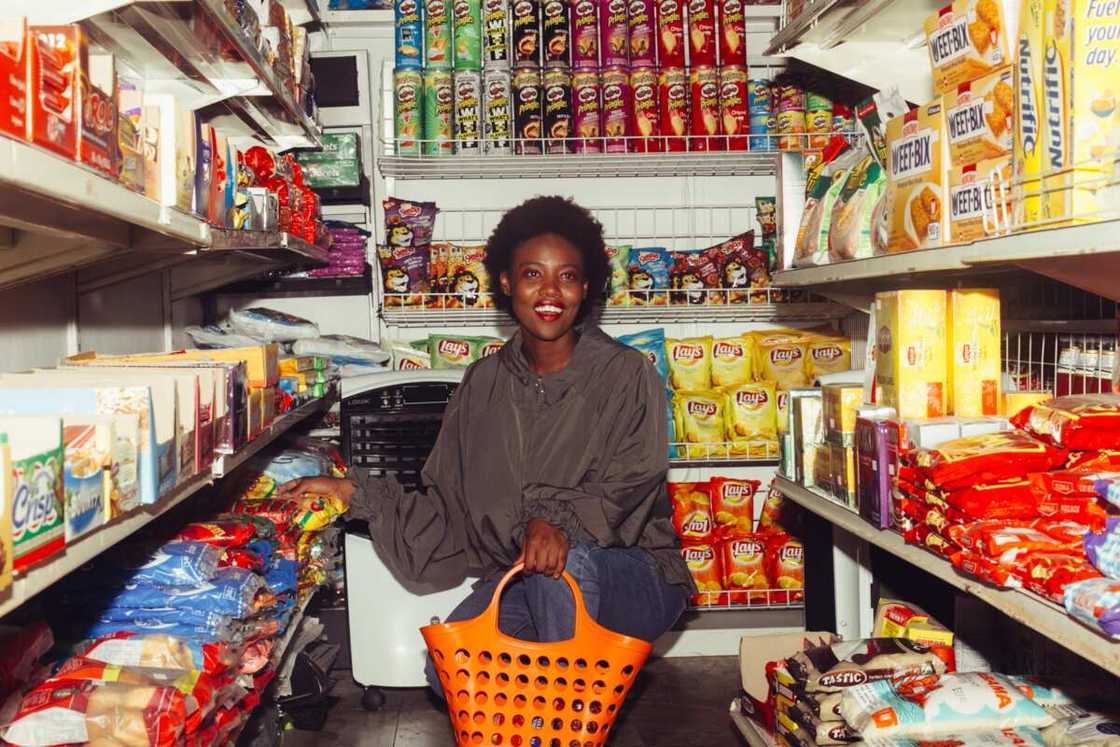
Source: UGC
Effects of high cost of living in Nigeria
The burden of the high cost of living is mainly felt by the low and medium-income groups who can no longer afford basic human needs without straining. Here is a look at the consequences of the rising prices of basic commodities.
- People experience reduced purchasing power, leading to a lower quality of life.
- Food insecurity, malnutrition, and hunger increase.
- The poor become poorer, making it extremely hard to break the cycle of poverty in families.
- Unemployment increases because people are retrenched as firms scale down operations.
- It leads to higher prices for real estate, rendering numerous people unable to build their own homes.
- People's mental and emotional well-being is compromised by the high-stress levels that come with the inability to meet basic needs.
- Increased health inequity between the poor and the rich.
What is the cost of living in Nigeria?
The cost of living in the country has gone up significantly in recent years. A single person's total monthly expenditure is about ₦310,669 without rent.
How much is typical rent in Nigeria?
The typical rent for a one-bedroom apartment outside the city is ₦457,453 in the city centre and ₦298,632 outside the city centre.
What is the cost of living in Ghana vs Nigeria?
The average cost of living in Ghana is about 11% cheaper than in Nigeria.
The cost of living in Nigeria has been rising gradually over the last few years. This has been a global phenomenon, especially after the coronavirus pandemic.
Legit.ng recently published a guide on how to book a flight online. Technology has revolutionised the world, and almost everything has gone digital.
Gone are the days when people would queue for hours in airports hoping to purchase air tickets. Today, you can book your flight in the comfort of your home. Learning how to book a flight online is a necessity in the contemporary world.
Source: Legit.ng

Cyprine Apindi (Lifestyle writer) Cyprine Apindi is a content creator and educator with over six years of experience. She holds a Diploma in Mass Communication and a Bachelor’s degree in Nutrition and Dietetics from Kenyatta University. Cyprine joined Briefly.co.za in mid-2021, covering multiple topics, including finance, entertainment, sports, and lifestyle. In 2023, she finished the AFP course on Digital Investigation Techniques. She received the 2023 Writer of the Year Award. In 2024, she completed the Google News Initiative course. Email: cyprineapindi@gmail.com

Adrianna Simwa (Lifestyle writer) Adrianna Simwa is a content writer at Legit.ng where she has worked since mid-2022. She has written for many periodicals on a variety of subjects, including news, celebrities, and lifestyle, for more than three years. She has worked for The Hoth, The Standard Group and Triple P Media. Adrianna graduated from Nairobi University with a Bachelor of Fine Arts (BFA) in 2020. In 2023, Simwa finished the AFP course on Digital Investigation Techniques. You can reach her through her email: adriannasimwa@gmail.com


